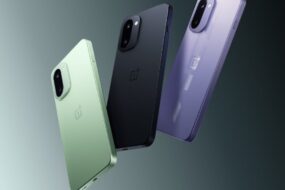
Samsung, South Korean company that is one of the world’s largest producers of electronic devices. Samsung specializes in the production of a wide variety of consumer and industry electronics, including appliances, digital media devices, semiconductors, memory chips, and integrated systems. It has become one of the most-recognizable names in technology and produces about a fifth of South Korea’s total exports.
Early years
Samsung was founded as a grocery trading store on March 1, 1938, by Lee Byung-Chull. He started his business in Taegu, Korea, trading noodles and other goods produced in and around the city and exporting them to China and its provinces. (The company name, Samsung, came from the Korean for “three stars.”) After the Korean War, Lee expanded his business into textiles and opened the largest woolen mill in Korea. He focused heavily on industrialization with the goal of helping his country redevelop itself after the war. During that period his business benefited from the new protectionist policies adopted by the Korean government, whose aim was to help large domestic conglomerates (chaebol) by shielding them from competition and providing them easy financing. In the late 1950s the company acquired three of Korea’s largest commercial banks as well as an insurance company and firms that made cement and fertilizer. Samsung in the 1960s acquired more insurance companies as well as an oil refinery, a nylon company, and a department store.
During the 1970s the company expanded its textile-manufacturing processes to cover the full line of production—from raw materials all the way to the end product—to better compete in the textile industry. New subsidiaries such as Samsung Heavy Industries, Samsung Shipbuilding, and Samsung Precision Company (Samsung Techwin) were established. Also, during the same period, the company started to invest in the heavy, chemical, and petrochemical industries, providing the company a promising growth path.
Electronics
Samsung first entered the electronics industry in 1969 with several electronics-focused divisions. Their first products were black-and-white televisions. During the 1970s the company began to export home electronics products overseas. At that time Samsung was already a major manufacturer in Korea, and it had acquired a 50 percent stake in Korea Semiconductor.
In March 2010 Samsung Group executives made Lee Kun-Hee the head of Samsung Electronics, the conglomerate’s largest division. Later that year he returned as chairman of the Samsung Group. However, in 2014 he suffered a heart attack that left him incapacitated until his death in 2020. Although Lee retained his posts, his son, Lee Jae-Yong (Jay Y. Lee), became the de facto leader of the Samsung Group.
Lee Jae-Yong was sentenced to prison in 2017 for bribing former president Park Geun-Hye. He served one year and was released in 2018 when his sentence was suspended. That suspension was overturned, and he was again imprisoned, from January to August 2021, when he was paroled. During Lee’s time in prison, Samsung was led by two, and later three, co-chief executive officers. Lee was also indicted in 2020 for financial crimes stemming from the 2015 merger of two Samsung subsidiaries. The government alleged that the values of the two subsidiaries had been manipulated to cement Lee’s overall control of Samsung after he assumed leadership.









